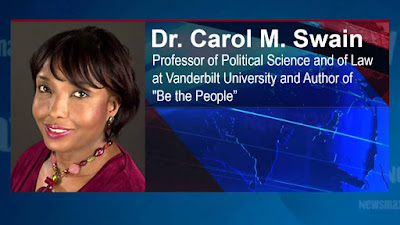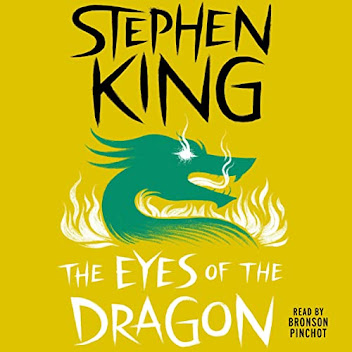Be the People: A Call to Reclaim America's Faith and Promise by Carol M. Swain, PhD
Sometimes incredibly strong, sometimes deeply flawed.
Published in 2011 by Thomas Nelson, Inc.
Published in 2011 by Thomas Nelson, Inc.
Carol M. Swain's Be the People: A Call to Reclaim America's Faith and Promise is a look at several broad areas of concern in American policy, including the high divorce rate, abortion, gay marriage, illegal immigration, race relations in America, HIV, school prayer, and the high unemployment among those with lower levels of education.
First, the positives:
-Swain's personal story is inspirational and she shares it as she writes about these issues.
-Swain provides a humane 15 point plan to deal with illegal immigration.
-Her commentary on race and racism are quite interesting and well thought out. I teach in a multi-racial school with a near even mix of whites and blacks and a great number of Hispanics as well. It can be tricky and Swain accurately describes many of the issues that I have encountered.
-Swain's section on abortion is also rock solid. There are profound arguments for why it is immoral and should be illegal from a number of sources, including from babies that survived and grew up, mothers that regret the decision (Swain is one of those mothers), medical evidence for increased cancer rates and solid philosophical and legal arguments.
Weaknesses:
-There are times when the text is confusing, almost like it was not proofread, merely spell-checked. For example, on page 123 she paraphrases a CDC report "....estimated that as many as one-third of black men were HIV positive..." but two sentences later notes that Washington, D.C. has the "highest rate of infections in the country, with an estimated...7 percent of its black men infected." Which is it, 33% or 7%?
First, the positives:
-Swain's personal story is inspirational and she shares it as she writes about these issues.
-Swain provides a humane 15 point plan to deal with illegal immigration.
-Her commentary on race and racism are quite interesting and well thought out. I teach in a multi-racial school with a near even mix of whites and blacks and a great number of Hispanics as well. It can be tricky and Swain accurately describes many of the issues that I have encountered.
-Swain's section on abortion is also rock solid. There are profound arguments for why it is immoral and should be illegal from a number of sources, including from babies that survived and grew up, mothers that regret the decision (Swain is one of those mothers), medical evidence for increased cancer rates and solid philosophical and legal arguments.
Weaknesses:
-There are times when the text is confusing, almost like it was not proofread, merely spell-checked. For example, on page 123 she paraphrases a CDC report "....estimated that as many as one-third of black men were HIV positive..." but two sentences later notes that Washington, D.C. has the "highest rate of infections in the country, with an estimated...7 percent of its black men infected." Which is it, 33% or 7%?
Another example: on page 134 she is discussing the National Council of La Raza and claims that La Raza is Latin for "the race." It is Spanish, not Latin - a fact that she gets correct in her end notes on page 289. On page 42 she is upset that the Obama administration correctly followed American flag protocol by allowing the Chinese flag ("signaling to the world that China was on equal footing with the United States") to fly alongside the American flag at a state dinner. The American flag flies higher than state flags, but at the same level as those of other countries. This is not an insult to America, it is international flag protocol.
-Sometimes it seems as though she is mystified that people who move here do not completely abandon their religious beliefs and immediately become Christians upon entering the country. On page 168, she notes that the Sabbath rules in Israel apply to the whole country, not just to the Jews. She then laments that newcomers to America sue to have their customs respected. My first thought was that Islam's Sabbath day is Friday and every Muslim student I have had came to school on their Sabbath and only one has made a stink about wanting time out of class to pray at the proscribed time.
-She wants prayer returned to school (pgs 34-35). I teach in a public school and I am a devout Christian - I only miss services 2 or 3 times per year. I have taught Sunday school, worked with the youth group, worked in more Vacation Bible Schools than I care to remember, have been a member of a small group Bible study for more than 15 years and I come from a line of Lutherans that probably knew Martin Luther (the man who started The Reformation) personally. I do not want prayers in public school.
-Sometimes it seems as though she is mystified that people who move here do not completely abandon their religious beliefs and immediately become Christians upon entering the country. On page 168, she notes that the Sabbath rules in Israel apply to the whole country, not just to the Jews. She then laments that newcomers to America sue to have their customs respected. My first thought was that Islam's Sabbath day is Friday and every Muslim student I have had came to school on their Sabbath and only one has made a stink about wanting time out of class to pray at the proscribed time.
-She wants prayer returned to school (pgs 34-35). I teach in a public school and I am a devout Christian - I only miss services 2 or 3 times per year. I have taught Sunday school, worked with the youth group, worked in more Vacation Bible Schools than I care to remember, have been a member of a small group Bible study for more than 15 years and I come from a line of Lutherans that probably knew Martin Luther (the man who started The Reformation) personally. I do not want prayers in public school.
Why not?
Whose prayers do we use? A generic multi-faith prayer that means nothing? A rotating prayer that includes some Hindu prayer, some Muslim prayers, some Christian prayers, some Wiccan prayers and so on? I have taught with Muslim, Hindu and Jewish teachers. Are they going to be forced to recite a Christian prayer? Would I want to be forced to recite a prayer from outside of my faith by my employer?
It is my understanding that Swain is a frequent guest on the Sean Hannity show. The parts of the book that I disliked were exactly the parts that appeal to the scream and yell "debate" with outrage gotcha type shows, like Hannity's. The other parts were well thought out - too bad the other stuff was not equally well considered and argued.
I received this book for free from Thomas Nelson's Booksneeze review program. They made no demands on the type of review I wrote, but I am forced to disclose this arrangement due to federal regulations.
I rate this book 2 stars out of 5.
This book can be found on Amazon.com here: Be the People: A Call to Reclaim America's Faith and Promise.
Reviewed on June 15, 2011.
It is my understanding that Swain is a frequent guest on the Sean Hannity show. The parts of the book that I disliked were exactly the parts that appeal to the scream and yell "debate" with outrage gotcha type shows, like Hannity's. The other parts were well thought out - too bad the other stuff was not equally well considered and argued.
I received this book for free from Thomas Nelson's Booksneeze review program. They made no demands on the type of review I wrote, but I am forced to disclose this arrangement due to federal regulations.
I rate this book 2 stars out of 5.
This book can be found on Amazon.com here: Be the People: A Call to Reclaim America's Faith and Promise.
Reviewed on June 15, 2011.












Comments
Post a Comment